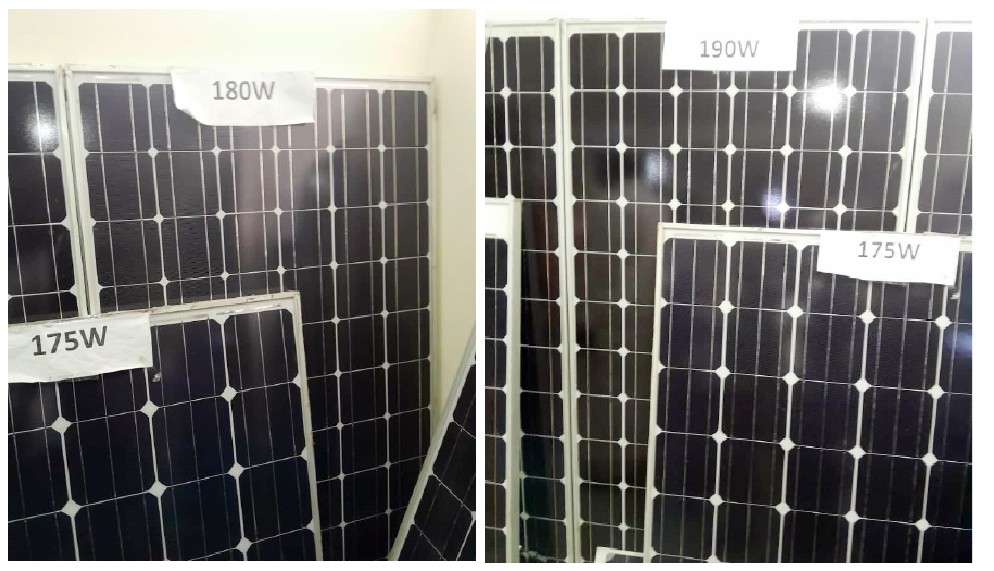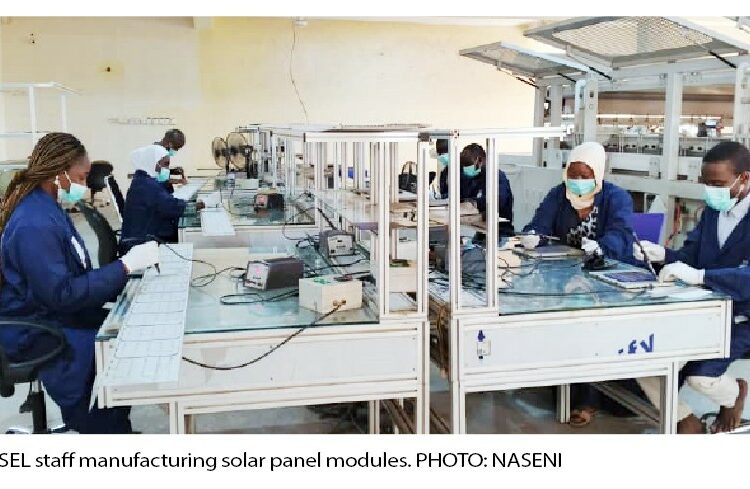The National Agency for Science and Engineering Infrastructure (NASENI) is deepening investment in renewable energy sector as alternative source of power to stimulate increased activities in the Nigerian Micro, Small and Medium Enterprises (MSMEs) to expand their potentials.
Recently, the federal government announced a commitment to invest ₦100 billion in solar, which highlights a shift towards renewable energy sources to tackle the country’s power deficits. The Federal Government’s allocation of ₦10 billion for Aso Rock’s solar infrastructure demonstrated its seriousness for a move towards clean energy solutions.
In line with President Bola Ahmed Tinubu’s “Renewed Hope” agenda, NASENI’s Management therefore under the leadership of Executive Vice Chairman/CEO Mr. Khalil Suleiman Halilu hoped to avail SMEs with renewable energy, not only for its revitalization but to turn the sector into a veritable area for job creation, empowerment and innovation especially to absorb the energy of the youths.
Under the dynamic leadership of Halilu, the Agency is now actively involved in powering Nigerian SMEs with renewable energy through its subsidiary, NSEL (NASENI Solar Energy Limited), particularly focusing on solar energy solutions. NSEL is a solar Photovoltaic (PV) Module/Solar Panel manufacturing company located at the Federal Capital Territory Abuja, wholly owned by the Agency.
The firm was established over a decade ago, following the growing frustration caused by shortage of power supply, thereby negating the industrialization drive of the country. The Small and Medium Enterprises (SMEs) sector in Nigeria contributes significantly to the national Gross Domestic Product (GDP), accounting for roughly 48 per cent.

The sector also plays a vital role in employment, with MSMEs representing 96 per cent of businesses and 84 per cent of the workforce. This makes them a crucial driver of economic growth and job creation in the country. This was why the NASENI boss has designated the sector a top priority as this essential infrastructure has become the veritable factor that is enhancing the growth and potential contribution of the SMES to the Nigerian economy.
NASENI’s initiatives aim to boost industrial development and provide reliable, cost-effective energy options for businesses, while also addressing the challenge of imported substandard solar products in the Nigerian market. With potential investments said to be worth billions of naira pumped into the plant, NSEL is already addressing the issue of over-reliance on imported solar products flooding the Nigerian market.
On Training and Skills Development, NSEL has taken the gauntlet and emphasized the importance of training and retraining technicians in the solar power sector to ensure proper installation and maintenance of solar systems. Many young Nigerians are currently benefiting from the NASENI training centers scattered around the country.
NASENI has also taken broader Initiatives, which include the Renewable Energy Master Plan (REMP) and Industrial Development Strategy, with the mandate to drive Nigeria’s industrial development through technology transfer, production of capital goods for MSMEs, and fostering local innovation.
The Agency has developed solar-powered irrigation pumps, offering a cost-effective and sustainable solution for farmers as well as the production of solar-powered lights, enhancing safety and security in off-grid areas. All these are targeted at providing MSMEs with access to renewable energy solutions, potentially through financing navigation, implementation strategies, and policy advocacy.
The benefits of renewable energy for MSMEs have been enormous. Firstly, it reduces energy costs because solar energy offers MSMEs a more cost-effective alternative to traditional energy sources. It also increases productivity by providing reliable power supply from solar solutions, which can lead to increased productivity for businesses.
By empowering MSMEs with access to renewable energy, NASENI contributes to the overall socio-economic development of Nigeria. With this massive investment NSEL produced solar panels to generate electricity on-site, reducing or eliminating reliance on the traditional power grid and its fluctuating prices.
So many MSMEs which have keyed into the NASENI Solar system have testified that they have made substantial savings on monthly electricity bills, especially for businesses with high energy consumption. Solar power provides a degree of energy independence from the national grid, shielding businesses from power outages and price volatility and this is particularly beneficial in areas with unreliable grid infrastructure or frequent power disruptions.
Reliable power supply from solar solutions has significantly benefited Nigeria by providing a consistent and sustainable energy source, reducing reliance on the unstable national grid and expensive fossil fuel generators, and promoting environmental sustainability.
The development of solar power infrastructure has created multiple jobs in manufacturing, installation, and maintenance, which has greatly helped in reducing the burden of unemployment in the country and attracting foreign investment in solar energy projects.
Recently, Halilu said on Kakaaki, a current affairs programme of the African Independent Television (AIT) in Abuja, that the solar manufacturing plant has been upgraded from 22 to 50 megawatts and that there are further plans to expand production capacity to over 100 megawatts in 2025 to meet growing demands.
According to Halilu, this current move is driven by the concern and passion to see a genuine socio-economic transformation of the country as well as the Agency’s desire to venture into full-scale solar manufacturing including other renewable energy mix that will help diversify Nigeria’s energy sources for greater efficiency.
In essence, solar power offers a pathway to a more reliable, affordable and sustainable energy future for Nigeria, addressing its pressing energy challenges while promoting economic growth and environmental responsibility.
Some Solar Panel wattages produced at the company include but not limited to 80W, 175W, 180W, 190W, 200W, 250W, 275W, 350W and 690W. They are distinguished by advantages such as locally produced, and a progressive step further in Nigeria’s industrialization drive.
Other products manufactured by NSEL include Plug ‘n’ Play Solar Home Solution, Hybrid Solar Power Trainer, Solar Powered Event Generator, NSEL Solar Control System, etc, they are designed and patented to generate clean electricity for homes and blend with furniture in a typical Nigeria sitting room.
NASENI is on the move and has remained focused on massive proliferation of renewable energy production including making available related raw materials while venturing into other forms of partnership with industry experts to provide the ever-expanding demands for clean energy in the country.





